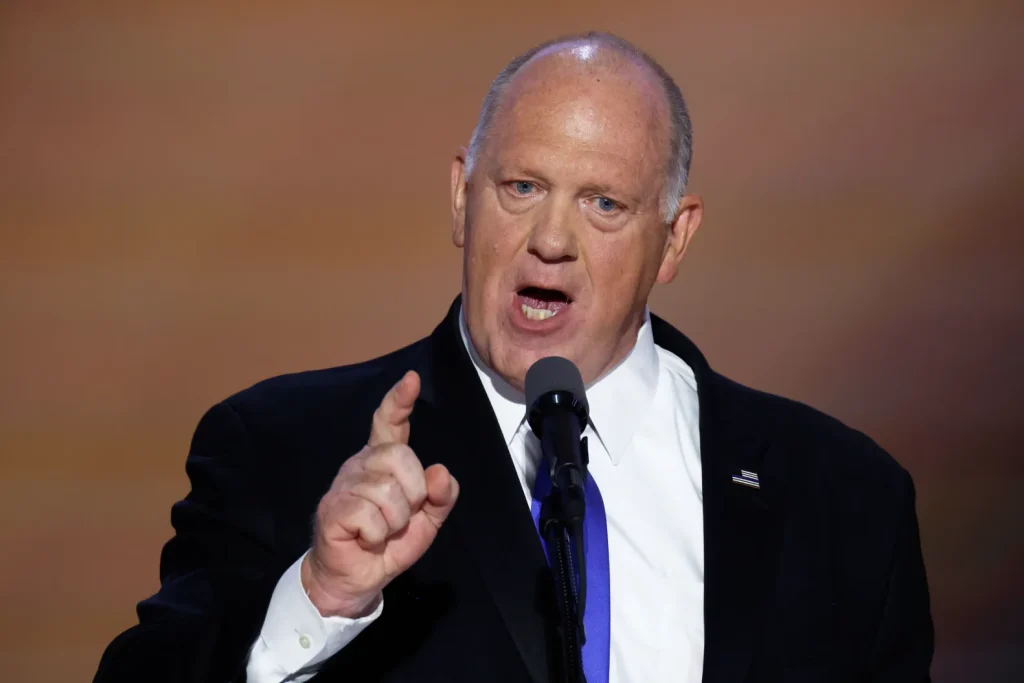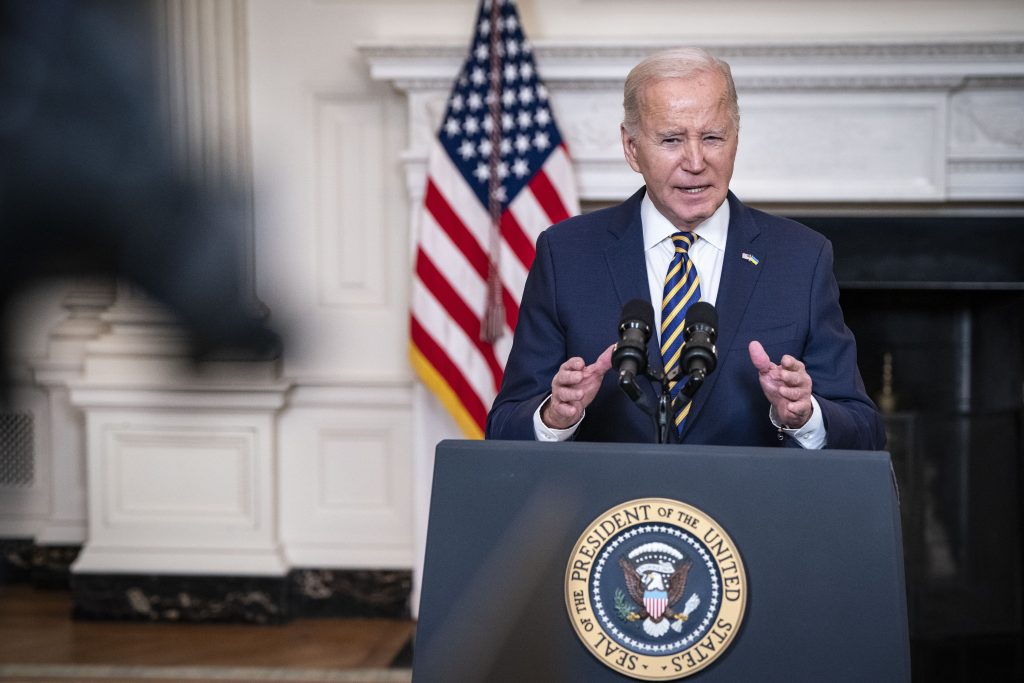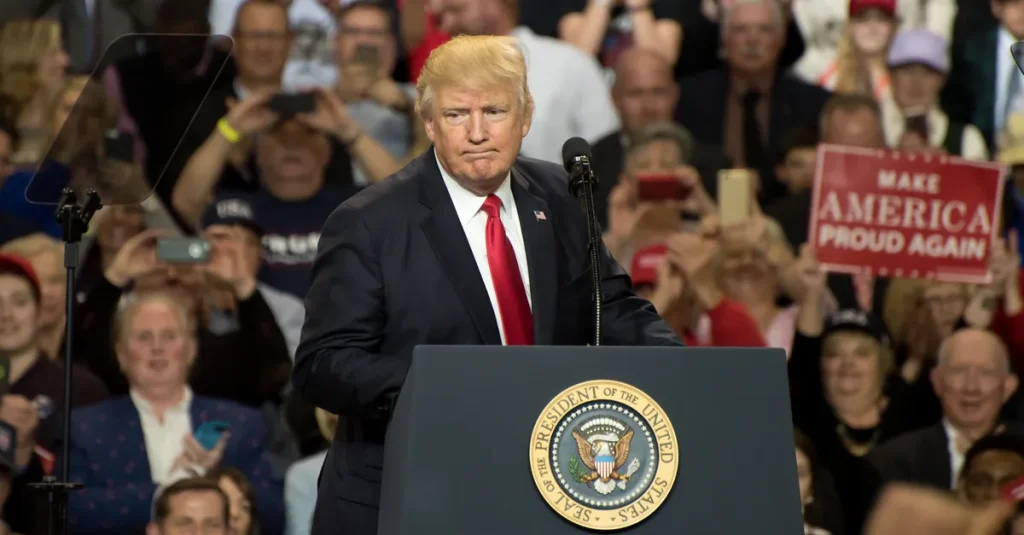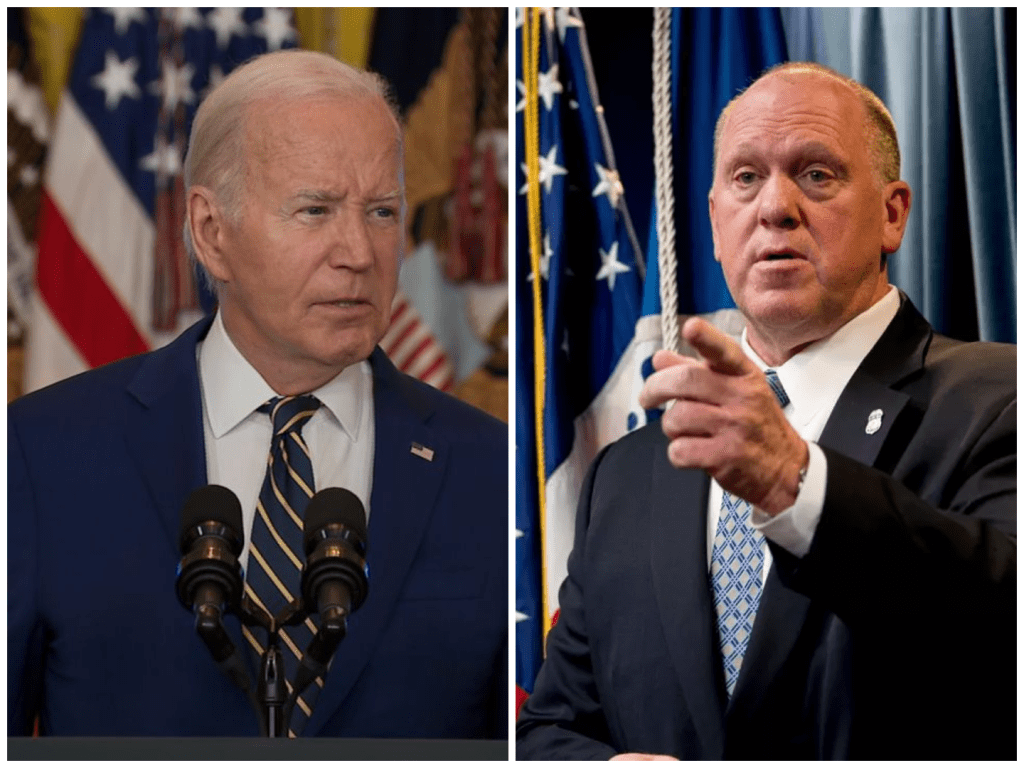Tom Homan Says Joe Biden Is the First President in U.S. History to “Unsecure the Border on Purpose”
When Tom Homan speaks about the border, people pay attention. He isn’t just another commentator or politician weighing in from the sidelines—he is a former Acting Director of Immigration and Customs Enforcement (ICE) and someone who has spent decades inside the system. His words don’t come from theory; they come from a lifetime of experience in law enforcement, border patrol, and immigration policy. So when he stood up recently and said that President Joe Biden is the first president in American history to “unsecure a border on purpose,” it struck a chord. For some, his statement felt like a bold truth finally being spoken out loud. For others, it was a controversial accusation in an already heated debate. But no matter where you stand, it is worth taking the time to understand what Homan meant, why he said it, and what it means for the country moving forward.

Homan’s comment came during a period of high tension over the U.S.-Mexico border. In recent years, the border has become a flashpoint in American politics, with images of overcrowded facilities, rising migrant encounters, and tragic deaths making headlines. Every administration has faced challenges in handling immigration, but Homan argues that what’s different under Biden is intent. He claims that while past presidents may have struggled with border security, Biden deliberately reversed policies that had made the border more secure. In his words, Biden “took the most secure border of my lifetime under Trump and unsecured it on purpose.”
That is a heavy charge. To understand it, you have to look back at the policies Homan is referring to. Under the Trump administration, the Department of Homeland Security implemented programs like “Remain in Mexico,” which required asylum seekers to wait outside the United States while their cases were processed. The administration also expanded border wall construction, tightened asylum rules, and increased deportations for those without legal status. Supporters argued these measures brought order to a chaotic system. Critics said they were harsh and often inhumane.
When Biden took office, many of those policies were rolled back quickly. The “Remain in Mexico” program was ended. Wall construction was halted. Enforcement priorities shifted, with a stronger focus on humanitarian treatment. To Homan, these moves weren’t just policy differences; they represented a deliberate choice to weaken border security. He believes Biden sent a message to migrants and traffickers that the border was open, and the results, he argues, are visible in the record-high number of crossings.
In his speeches and testimony, Homan often points to statistics: migrant encounters topping two million in a year, sharp increases in fentanyl trafficking, and rising deaths among migrants attempting dangerous crossings. For him, these numbers aren’t just data—they represent real people, both migrants and Americans, caught up in a system he believes is failing. He has described the situation as a humanitarian crisis as well as a security one, arguing that Biden’s policies encourage people to risk their lives crossing deserts and rivers, only to be exploited by smugglers and cartels.
At the heart of Homan’s criticism is a simple but powerful belief: that leaders have a responsibility to secure the nation’s borders, and failing to do so is a betrayal of public trust. When he says Biden “unsecured the border on purpose,” he is not just making a policy argument. He is making a moral one. He is suggesting that the consequences—crime, drug smuggling, deaths—are not just accidents of policy but predictable results of choices made at the highest levels.

Of course, not everyone agrees with Homan’s assessment. The Biden administration has defended its approach, arguing that the immigration system was broken long before Biden took office and that reforms are needed to create a fairer, more humane process. Officials point out that enforcement hasn’t disappeared under Biden—deportations still occur, and security measures are still in place. They also stress that many of the root causes of migration, from poverty to violence in Central America, are beyond the control of U.S. border policies. To them, Homan’s claim that the border was “unsecured on purpose” oversimplifies a complex issue and ignores the challenges of balancing security with compassion.
Still, Homan’s words resonate with many Americans who feel that the border is out of control. Stories of repeat offenders crossing back into the U.S., or of fentanyl flooding communities, fuel a sense of fear and frustration. For people living in border states, the issue isn’t just political—it’s personal. Ranchers find migrants crossing their land. Local hospitals see the strain of caring for people in need. Police departments grapple with crime linked to trafficking. Against this backdrop, Homan’s blunt accusation hits home.

What makes his statement even more powerful is that he isn’t speaking as a politician running for office. Homan has spent his career in the trenches of immigration enforcement. He’s led ICE, worked with border patrol, and seen firsthand what happens when policies shift. His credibility comes not from campaign promises but from years of working the system and watching the results play out in real time.
The question now is what impact his words will have. Will they push lawmakers to take a harder stance on border security? Will they deepen the divide between those who want stricter enforcement and those who want more humane reforms? Or will they fade into the background noise of America’s endless political battles?
One thing is clear: Homan’s statement has reignited a conversation that refuses to go away. The border has always been a symbol—of opportunity for some, of danger for others, of sovereignty and identity for the nation as a whole. Every president faces the challenge of balancing these meanings, and every president leaves a legacy shaped by how they handled it. Homan is arguing that Biden’s legacy, at least when it comes to the border, will be defined not by failure alone but by deliberate choices.
Whether you agree with him or not, it’s impossible to ignore the weight of his words. They come at a time when trust in government is fragile, when communities feel the impact of policy decisions more than ever, and when the question of who we let in—and how—is shaping the country’s future.
As with many debates in America, the truth likely lies somewhere between extremes. The border wasn’t perfectly secure under Trump, and it isn’t fully unsecured under Biden. Migration is driven by forces larger than any single president’s policies. But what Homan’s statement does is force us to confront the reality that leadership matters, choices matter, and the consequences of those choices ripple far beyond Washington.
In the end, Homan’s claim isn’t just about Biden. It’s about what kind of country the United States wants to be. Do we want a border defined by strict security, no matter the cost? Do we want one defined by openness and compassion, even if it brings risks? Or is there a path somewhere in between that balances safety and humanity? These are not easy questions, but they are ones we cannot avoid.
For now, Tom Homan has made his view clear. He believes the current president is the first in history to deliberately make the border less secure. Whether history agrees with him will depend on what happens next—on the policies chosen, the results measured, and the stories told by those who live at the border every day.


